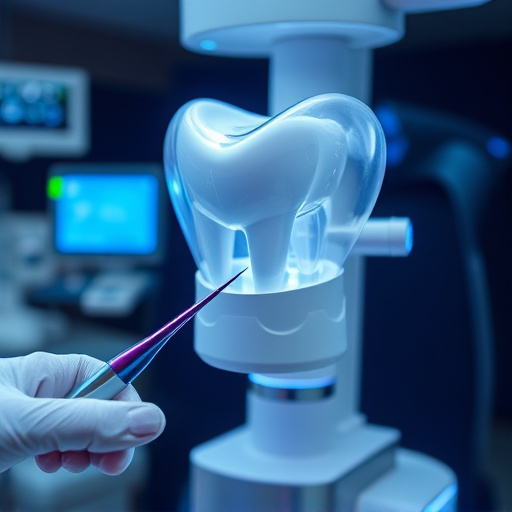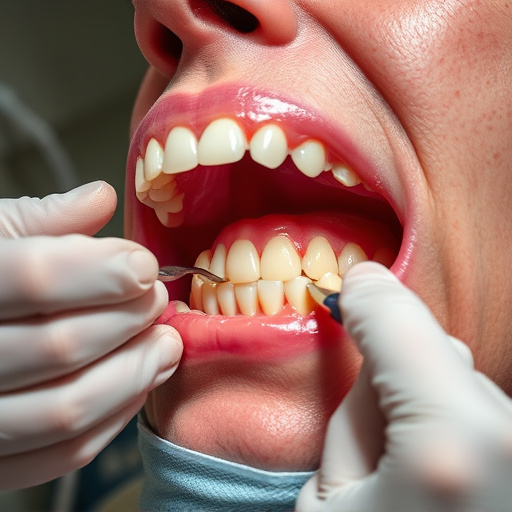Sleep apnea, with breathing pauses during sleep, poses serious risks to heart health if untreated. Early intervention through treatments like CPAP therapy or oral appliances is crucial for mitigating these risks and improving sleep quality. Integrating preventive dentistry, including wisdom tooth removal, offers additional relief. Effective sleep apnea treatment reduces cardiovascular events, regulates blood pressure, and prevents conditions like coronary artery disease, making it a key component of holistic wellness.
“Sleep apnea, a common yet often undiagnosed sleep disorder, can have severe consequences on cardiac health. This article delves into understanding sleep apnea and its impact on the heart, exploring effective treatment options, and highlighting how addressing this condition may prevent serious cardiac events. By examining the latest research and medical insights, we aim to emphasize the importance of early intervention through targeted sleep apnea treatment.”
- Understanding Sleep Apnea and Its Impact on Cardiac Health
- Exploring Effective Sleep Apnea Treatment Options
- The Role of Sleep Apnea Treatment in Preventing Cardiac Events
Understanding Sleep Apnea and Its Impact on Cardiac Health

Sleep apnea is a sleep disorder characterized by pauses in breathing during sleep, leading to decreased oxygen intake and increased strain on the cardiovascular system. This condition is more than just tiredness upon waking; it can have severe consequences for cardiac health if left untreated. The impact of sleep apnea extends beyond mere fatigue, contributing to an elevated risk of hypertension, heart attacks, and strokes. In essence, it disrupts the body’s natural restorative processes, leaving individuals vulnerable to a range of health issues.
Understanding the correlation between sleep apnea treatment and cardiac prevention is crucial. Early intervention through effective sleep apnea treatments, such as continuous positive airway pressure (CPAP) therapy or oral appliances, can significantly mitigate these risks. By addressing the underlying breathing disruptions, these treatments not only enhance overall sleep quality but also play a pivotal role in maintaining cardiovascular health. Preventive dentistry, in this context, involves recognizing and managing sleep apnea to avoid more serious complications, even considering ancillary procedures like wisdom tooth removal if they alleviate breathing obstructions.
Exploring Effective Sleep Apnea Treatment Options

Exploring effective sleep apnea treatment options is crucial for those at risk of serious cardiac events. This condition, characterized by pauses in breathing during sleep, can lead to a host of health issues if left untreated. Luckily, there are several proven strategies available today. From continuous positive air pressure (CPAP) machines that maintain steady airflow, to oral appliances that reposition the jaw, and even advanced procedures like corrective surgery, individuals suffering from sleep apnea have a variety of options to choose from.
In addition to these standard treatments, some professionals also recommend integrating cosmetic and restorative dentistry solutions. Procedures like dental implants or cosmetic fillings not only enhance smiles but can also alleviate symptoms associated with sleep apnea by addressing underlying oral issues that may be contributing factors. Exploring these multifaceted approaches ensures a holistic treatment plan tailored to individual needs.
The Role of Sleep Apnea Treatment in Preventing Cardiac Events

The impact of sleep apnea on cardiac health is a growing area of concern among medical professionals. This condition, characterized by pauses in breathing during sleep, can lead to various cardiovascular issues. However, implementing effective sleep apnea treatment offers a promising avenue for prevention and management. By addressing the underlying causes, such as obstructed airways or irregular respiratory patterns, specialized therapies can significantly reduce the risk of cardiac events.
Regular sleep apnea treatment not only improves overall sleep quality but also has profound effects on heart health. It helps regulate blood pressure, reduces strain on the cardiovascular system, and prevents the development of comorbidities like coronary artery disease. Integrating these treatments into routine oral exams and comprehensive dental care regimens can be a game-changer in preventive medicine, ensuring folks receive holistic care for both dental and cardiac wellness.
Sleep apnea treatment isn’t just about improving sleep quality; it plays a pivotal role in preventing serious cardiac events. By addressing this condition, individuals can significantly reduce their risk of heart disease and stroke. Exploring effective treatment options, such as continuous positive airway pressure (CPAP) therapy or oral appliances, is crucial for maintaining both restful sleep and robust cardiac health. Remember that early intervention and consistent adherence to treatment plans are key to reaping these benefits.














